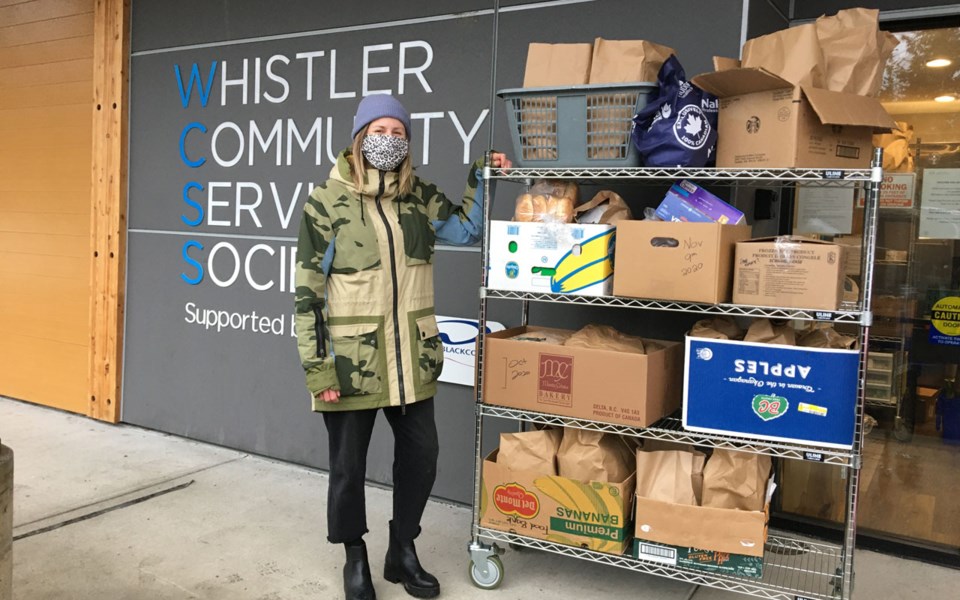As COVID-19 case counts continue to surge and the pandemic approaches the nine-month mark with winter approaching, Whistler Community Services Society (WCSS) executive director Jackie Dickinson said the organization is ready to help.
“We’ve been talking a lot about what it takes to have enough gas in our gas tanks, essentially, to navigate the next few months,” she said.
“There are a number of factors at play that can impact anyone’s mental health and well-being.
“We care about them and we need to ensure that their mental health and wellness is a top priority so they can continue to support the needs and the well-being of our community.”
In addition to the pandemic, with flu season, shorter days and a general sense of lingering uncertainty, the organization is preparing for an uptick in requests in what’s already been a record-breaking year, noting that the worst stretch was in May, when 57 per cent of those seeking assistance identified as being in crisis.
As such, WCSS is expanding the scope of its services. For one, it has partnered with Whistler Connection to allow for more food bank deliveries, while in-person food bank services are available at 8000 Nesters Rd. on Wednesdays and Fridays from 9 to 11 a.m.
As well, Dickinson stressed that even with some return to in-person support, services are still being offered virtually, which is all the more important at a time when more people may be isolating for any number of reasons.
“They have that resource to connect to someone virtually, connecting to something that’s a really positive tool and support system,” she said.
As well, a recent success came when WCSS coordinated with the Whistler Health Care Centre, so that when people get tested for COVID-19, they receive a text not only about how to access test results, but also how to access WCSS services.
“They can book online to meet with one of our access workers or access information about our food banks,” Dickinson said. “We’re really trying to connect right away to people who may be entering situations that will leave them economically vulnerable, challenged or isolated from their support networks.”
As the pandemic has continued, WCSS has sought insight from elsewhere as to how to tailor its response, Dickinson said.
One idea being implemented in high-density areas in Vancouver is that food banks are also delivering hygiene products and cleaning products such as masks, disposable gloves, and disinfectant wipes for people sharing homes, which WCSS is looking to add.
“They’re being given the tools and resources to keep those areas safe and help mitigate as much risk and exposure as possible,” Dickinson said.
As well, WCSS is collaborating with regional food banks to determine how to continue to serve while keeping frontline staff safe.
Those looking to help can shop at the Re-Use-It or Re-Build-It centres, or support the holiday hamper program. Dickinson noted that $100 supports two for a week while $400 provides food and gifts for a family of four.
As well, she stressed it’s OK for people to receive the help.
“We want to remove the stigma around that,” she said. “We want people to feel comfortable accessing our services knowing they’re confidential and we are here to support them.”
WCSS has collected demographic stats since 2014, with the community growing through increased access to affordable housing, as well as a baby boom.
“We see everybody, so when you look at our stats, we actively support young people and older people, but when you look at the main demographic, they’re often around 37 or 38 years old, a lot of times with dependents and they’ve lived in the community for more than one year,” she said. “That’s important information to share in the sense that I think that it normalizes this conversation for a lot of us who live here.
“They’re looking to find a way to make Whistler home, and they’re reaching out to services and that’s really a sign of strength.”
For more info, visit mywcss.org.




